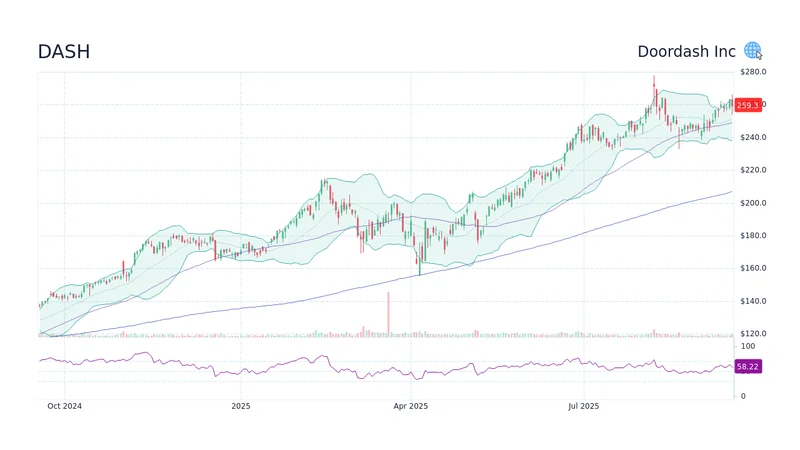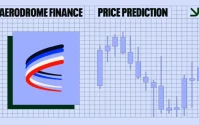Alright, let's talk DoorDash. The headline? "DoorDash stock tanks 14%." The reason? A third-quarter earnings report that missed expectations, coupled with a warning about increased spending in 2026. Seems straightforward, but as always, the devil’s in the details – specifically, how much diaper rash cream this "baby" is going to need.
Digging Into the Numbers
The company reported earnings of 55 cents per share, shy of the 69 cents analysts were expecting. Revenue, however, beat expectations at $3.45 billion versus the predicted $3.36 billion. So, revenue up, earnings down. The discrepancy? DoorDash is prepping to pump "several hundred million dollars" into new initiatives and development next year. (The exact figure remains vague, which is always a bit of a red flag.)
DoorDash is framing this spending as necessary investment, writing in their earnings release, "We wish there was a way to grow a baby into an adult without investment, or to see the baby grow into an adult overnight, but we do not believe this is how life or business works." Cute analogy, but I'm not sure investors are in the mood for nursery rhymes when their portfolios are taking a hit.
They're developing a new global tech platform, and the Dot autonomous delivery robot is still in the works. All this tech comes at a price, and DoorDash is telegraphing that those costs will be significant in the near term. Revenue increased 27% year-over-year, and net income rose from $162 million (38 cents per share) last year to $244 million (55 cents per share) this quarter. Growth is good, but it’s not enough to offset the looming expenses, apparently.
One thing that's interesting is that DoorDash reported a gross order value of $25 billion, exceeding the expected $24.5 billion. This suggests people are still using the platform, but maybe not as profitably for DoorDash. This makes me wonder, is the problem demand or DoorDash's cut?

The Chipotle Connection and Consumer Sentiment
Here's where it gets interesting. DoorDash's report comes on the heels of some pretty dismal quarters from restaurants like Chipotle and Cava. They're blaming "cash-strapped younger consumers." So, is DoorDash feeling the pinch of a tightening consumer wallet as well? If people are cutting back on discretionary spending, food delivery services are an easy target.
And this is the part of the report that I find genuinely puzzling. Are these restaurants seeing reduced volume because of a change in consumer behavior, or are they losing out to new competitors? If the former, DoorDash is in trouble. If the latter, DoorDash needs to adapt – and fast.
It's tough to say for sure without more detailed data, but the anecdotal evidence from restaurant earnings, combined with DoorDash's projected spending increase, paints a picture of a company trying to outrun a potential slowdown. The stock plunge, therefore, feels justified. Investors are clearly nervous about DoorDash's ability to maintain its growth trajectory while simultaneously pouring money into long-term projects.
The company announced its Dot autonomous delivery robot in September. I wonder how far along the process is, and what it will cost.
"Several Hundred Million" Isn't a Strategy
DoorDash is essentially saying, "Trust us, we know what we're doing." But "several hundred million dollars" isn't a strategy; it's a blank check. Investors want to see a clear roadmap, not just a promise of future growth. The market reaction suggests they're not convinced, and frankly, neither am I. DoorDash needs to show how these investments will translate into tangible results – increased efficiency, expanded market share, or new revenue streams – before the stock price recovers. Otherwise, this "baby" is going to be a very expensive burden.










